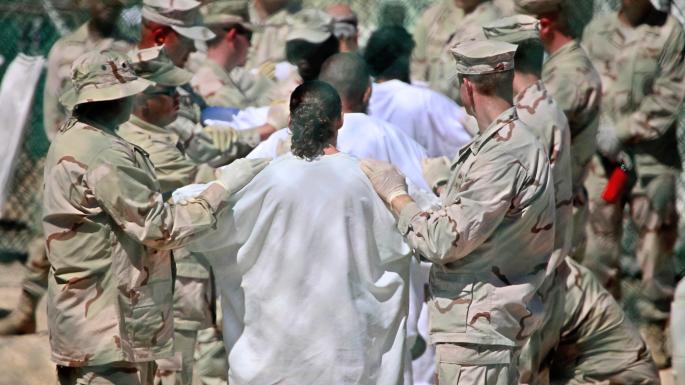On June 28, the U.K.’s key, non-partisan parliamentary intelligence oversight body, the Intelligence and Security Committee published a report about “Detainee Mistreatment and Rendition 2001-2010.” It concluded that while U.K. secret agencies did not mistreat detainees themselves, they and therefore the U.K. government at its most senior levels had tolerated “inexcusable treatment of detainees.”
The evidence presented in the report makes horrifying reading: in 232 cases U.K. intelligence and defense personnel provided questions or intelligence to “liaison” agencies (chiefly the CIA) after they knew, or suspected, detainees were being mistreated; in 2 cases U.K. personnel were directly involved in mistreatment, in 4 cases they threatened it; there were 13 incidents where U.K. officials witnessed at first hand a detainee being mistreated; 128 cases where U.K. officers were told of mistreatment by foreign services and did nothing; 198 cases where the U.K. received intelligence from liaison services who had used mistreatment; 38 cases in 2002 alone where officers witnessed or heard about mistreatment. As for rendition: in 28 cases the U.K. suggested, planned or agreed to rendition, a further 22 cases where it enabled it and 23 cases where the U.K. failed to prevent it.
Had the U.K. not been completely absorbed by the Brexit process, this extremely important report would have had much more attention than the limited publicity it got in June. It is highly likely that the Foreign Secretary, for much of the time, Jack Straw would have been asked to submit to a judicial investigation over his claims that he had not authorized rendition and knew nothing about it (a claim that was as incredible then as it is now).
At least three intelligence heads, Sir Richard Dearlove (chief or ‘C’ of MI6, 1999-2004), Sir Stephen Lander (director general of MI5, 1999-2002), and Baroness Eliza Manningham-Buller (director general 2002-2007) would have been required to face a similar inquiry had this ISC report not slipped under the radar because of the Brexit chaos. Two further ex-intelligence chiefs, Sir John Sawers and Lord (Jonathan) Evans, representing MI6 and MI5, would also have been called to account in view of their misleading statements made in 2010. Lord Evans had publicly declared that “in 2005 and 2007 we did not practice torture, nor do we collude in torture or encourage others to do so on our behalf.” Sir John had said, also in public, that “torture is illegal and abhorrent and we have nothing whatsoever to do with it.”
Of course, one could enter into a ridiculously contrived debate as to whether “mistreatment” was “torture” and whether Evans and Sir John were simply saying “we didn’t do it in 2005 and 2007, don’t do it now, but did do it in 2003, 2004 and 2006.” But engaging in such sophistry does little to encourage the thinking public to have confidence in any secret activity done its name.
Yes, in January 2002 the White House lawyer John Yoo argued that to “inflict pain up to the level of organ failure but not beyond it” did not constitute torture. Yoo’s definition of what was and was not torture remains offensive to all decent people everywhere but not, it seems within British intelligence circles hence the denial that the U.K. had been complicit in it.
The definition allowed both waterboarding and other physical and mental abuse of horrific proportions to take place. For example, CIA’s first detainee Abu Zubaydah was waterboarded 83 times and Khalid Sheikh Mohammed, one of the alleged 9/11 co-conspirators, 183 times. Sexual degradation and the use of dogs to terrify detainees was repeatedly used by U.S. captors in the Abu Ghraib prison in Iraq. All this is torture. End of story.
Why does this issue matter? No one has any sympathy for any Islamist terrorist, whether in 2001 or 2018. But that is not the point. There are three vital reasons why the ISC report deserves deep attention. First of all, the institutional use of violence to obtain intelligence is what the adversaries of free democracies do and have done, from ISIS to the Soviet Union and in particular the Third Reich. It is the opposite of the values for which we stand and as such legitimizes our actions against states that institutionalize torture. It is an absolutely key issue. With the election of President Donald J. Trump, the U.S. again has a president who believes that torture works. With Brexit pushing the U.K. closer to the U.S., this complicity in torture could easily be repeated.
Second, the misleading statements by former Foreign Secretary Straw and others raise profound questions about how those outside the “ring of secrecy,” not least academic students of intelligence and security questions, may understand and analyze secret activity and communicate it to a wider public. If we are misled, the consequences are very grave indeed.
And thirdly, it is clear that we cannot entirely rely on the U.K.’s elaborate oversight body to do its work properly. One very distressing detail in its report reads as follows: “We needed to examine certain matters [relating to mistreatment] by taking evidence [from officers]. We have been denied that access by the Prime Minister.” Theresa May’s decision is hard to understand. She is fully able to trust the Intelligence and Security Committee (ISC) because it operates within the ring of secrecy (under section 1(1)(b) of the 1989 Official Secrets Act).
It has a statutory duty to monitor and investigate the security secrets of the British state, where it seeks to deliver security through secret intelligence-led means. The ISC would never disclose any operational secrets, but it could inform the public about ethical and operation wrongdoing in the past. That it should be denied permission to tell the full story is disgraceful and almost certainly unconstitutional.


